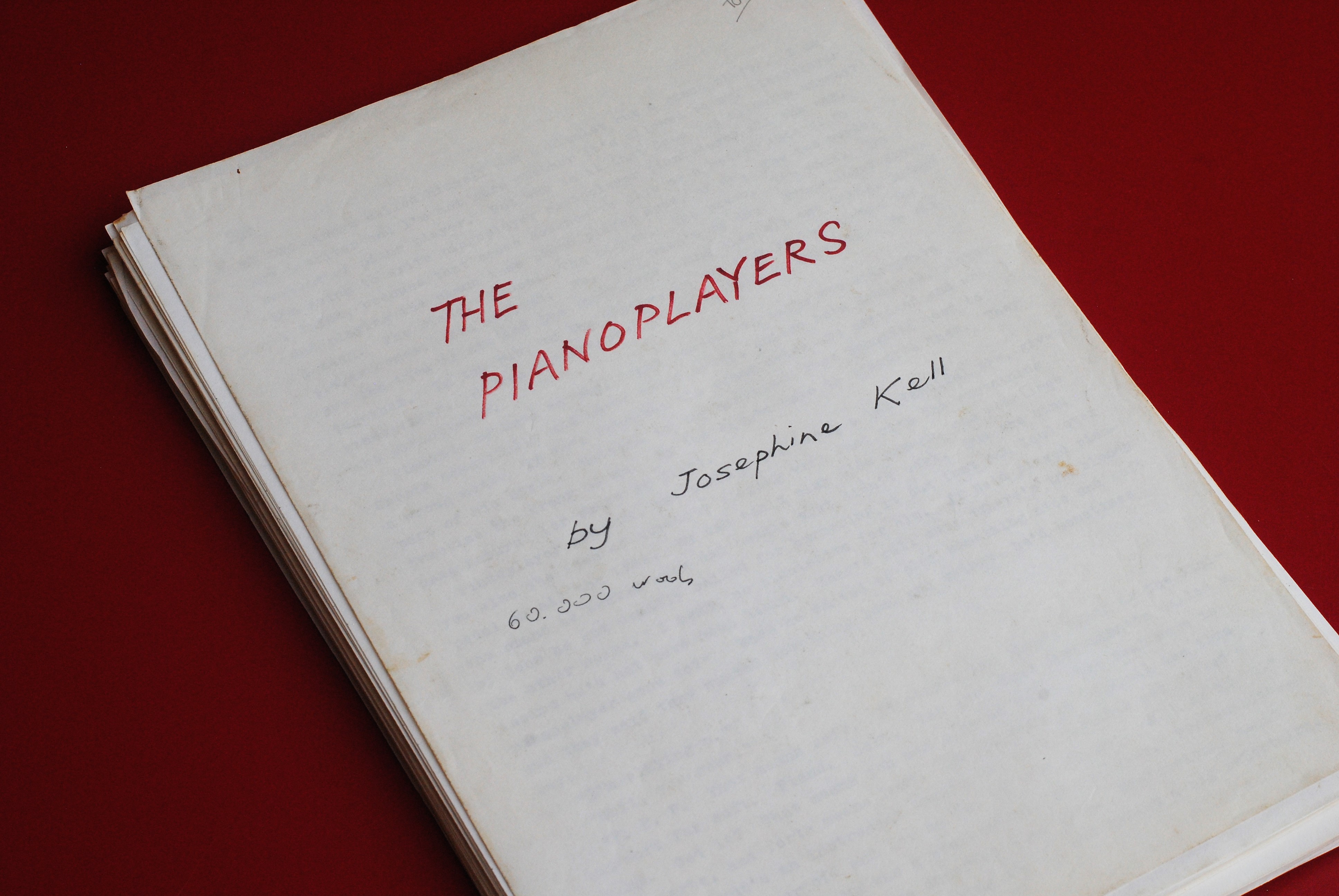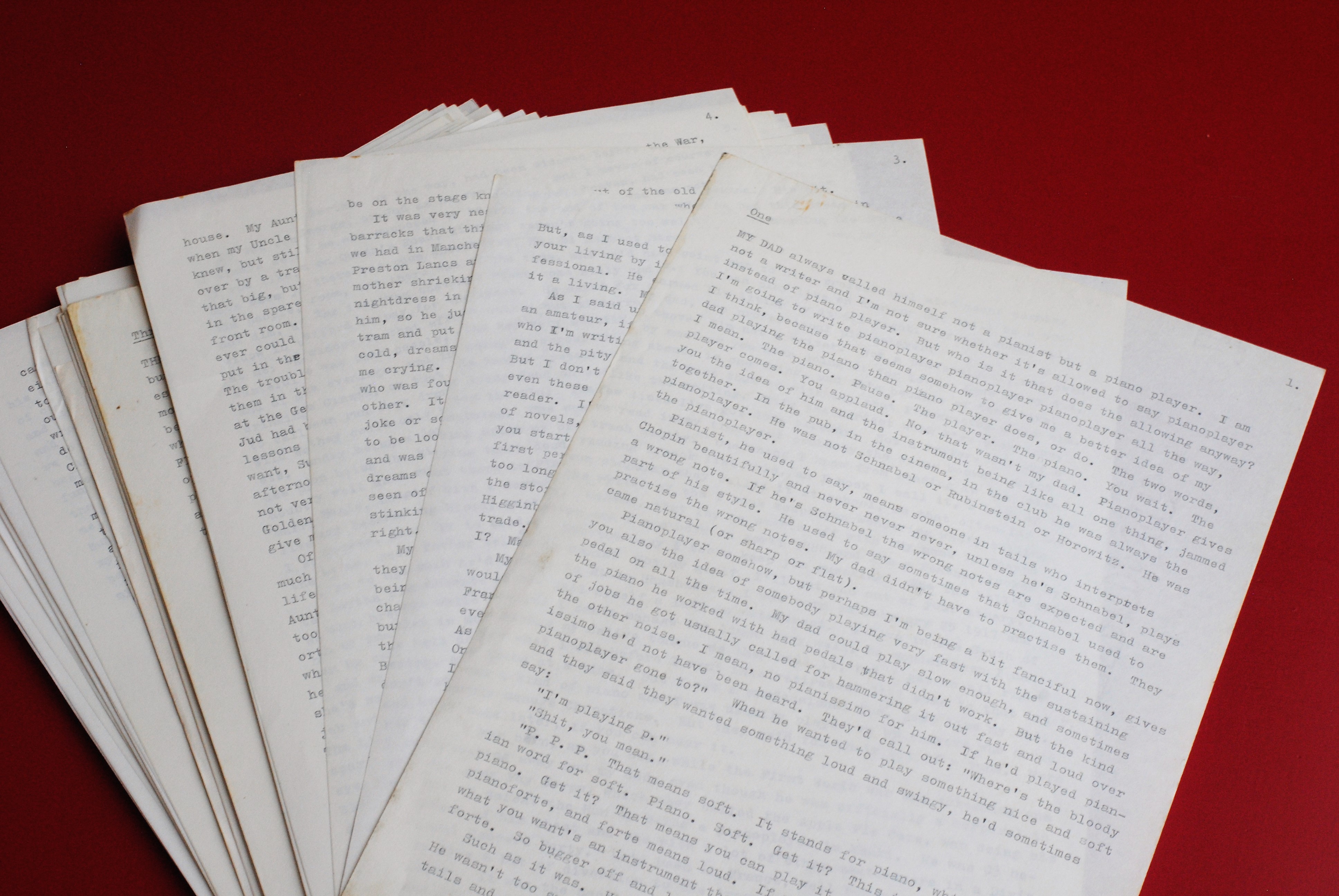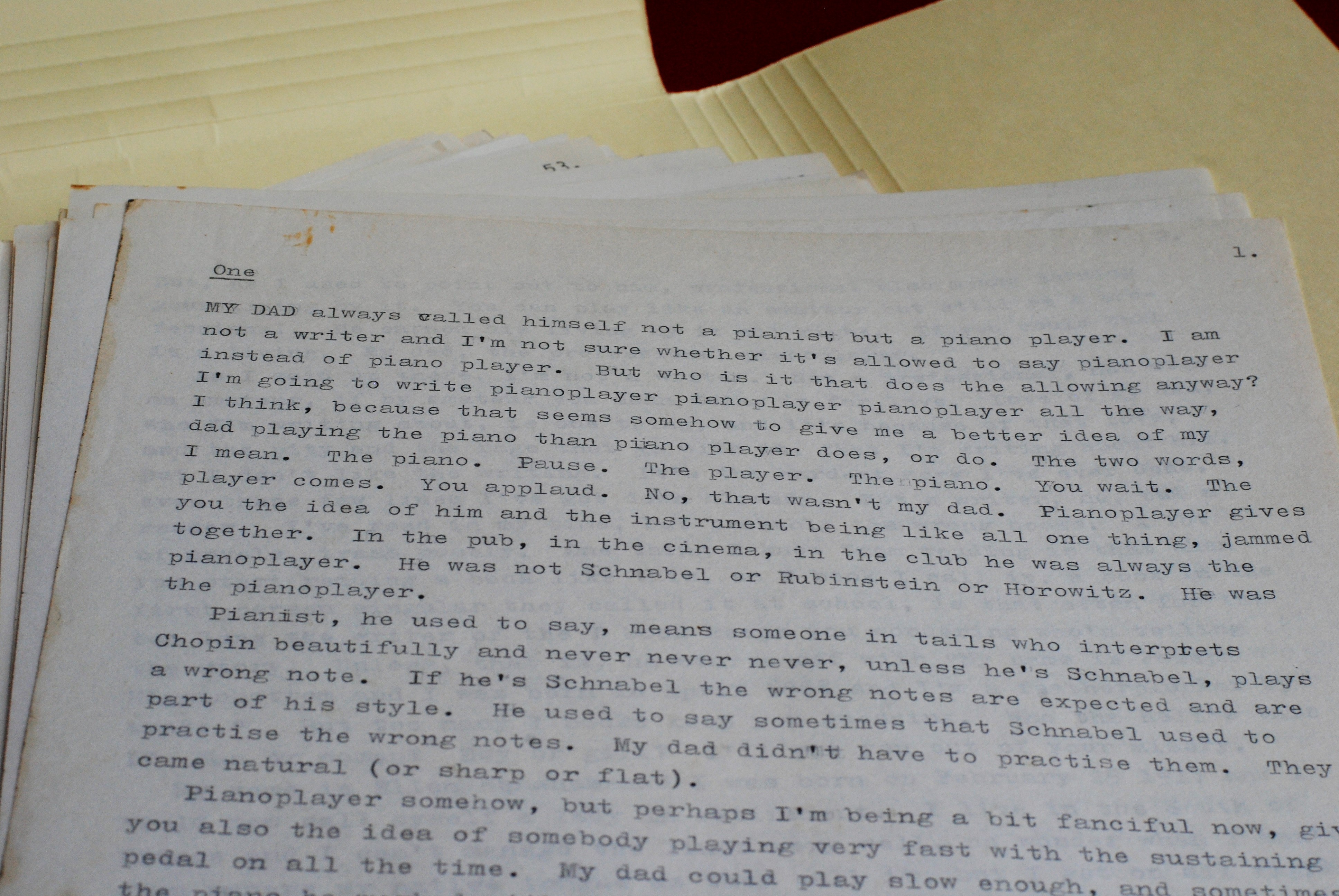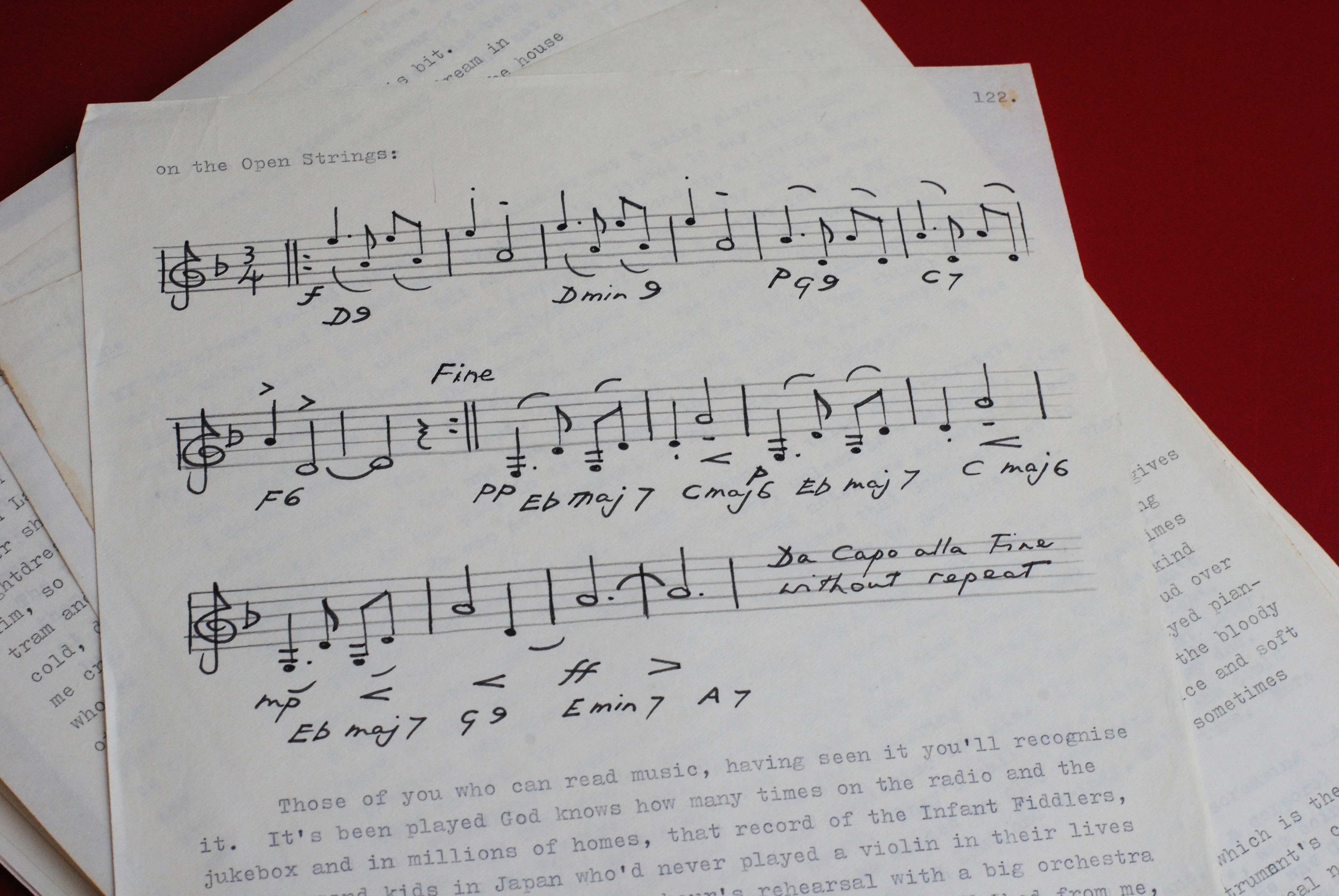Object of the Week: The Pianoplayers Typescript
-
Will Carr
- 12th September 2017
-
category
- Object of the Week

In 1986 Anthony Burgess published The Pianoplayers, a ribald, light-hearted story about the picaresque adventures of Ellen Henshaw and her dissolute pianoplayer father, Billy, in the silent cinemas and pubs of Manchester and Blackpool in the 1920s. Drawing on the circumstances of Burgess’s family life, the novel balances its portrayal of the poverty and deprivation experienced by travelling music-hall artistes with affectionate nostalgia for the popular culture of the time. The Pianoplayers is an important and unjustly neglected novel which, especially when read alongside the first volume of Burgess’s autobiography Little Wilson and Big God (1987), provides useful detail about Burgess’s background and cultural formation.

The draft typescript in the archive at the International Anthony Burgess Foundation is not dated, but letters between Liana Burgess and Gladys J. Carr, senior editor at McGraw-Hill in New York, establish that the shorter first version of the novel had been completed by June 1977. According to the title page, the author is apparently a writer named ‘Josephine Kell’.
By 1977 Burgess had already published two novels as ‘Joseph Kell’: One Hand Clapping (1961) and Inside Mr Enderby (1963). This nom de plume — a reference to the Book of Kells — was created on the advice of his editors at William Heinemann, to obscure the large number of novels by Anthony Burgess which were completed in quick succession in the early 1960s. ‘Josephine Kell’ does not appear elsewhere as a pseudonym in Burgess’s writing, and she does not survive into the version of the novel published in 1986, but there is at least some relationship with these earlier books, because One Hand Clapping is the only other Burgess novel with a female narrator.

The typescript itself, in common with the other manuscripts in the archive, is very lightly corrected in Burgess’s hand. Minor emendations are made to adjust spellings, and there are a few small changes in expression. However, the published novel did not appear in quite this form, and there are some important structural differences between the early typescript and the final shape of the text. For example, the 1977 draft omits a framing narrative of an elderly Ellen Henshaw reminiscing about her life in Manchester in the 1920s, and instead plunges the reader straight into the main story, in which Ellen as a child is taught to play the piano by Billy. Later in the novel, her father’s attempt to complete a pianoplaying marathon to save the fortunes of the family is placed as the final chapter, as its hilarious but tragic climax. The published text continues the story by adding three longish chapters dealing with Ellen’s later life, and the effect is very different. In summary, the 1977 typescript presents a shorter, more focussed narrative, which draws quite heavily on the biographies of Burgess’s mother and father. There is perhaps more distance and expansiveness in the published version of novel. The first draft typescript allows us to see the work in an earlier state of gestation.

The New York publisher declined to publish the short version of The Pianoplayers in 1977, but the novel did not disappear from Burgess’s plans: the text appears in his plan for the Irwell Edition, and an expanded second draft, dated 1982, may be found among the Burgess papers at the Harry Ransom Center at the University of Texas at Austin. The firm of Hutchinson in London, who were responsible for most of Burgess’s novels after 1976, published the book four years later.
The Pianoplayers has often been considered to an autobiographical work which functions as a precursor or warm-up to Burgess’s two volumes of memoirs. However, placing The Pianoplayers in its original context of Burgess’s ambitious and experimental writing of the 1970s — such as Beard’s Roman Women (1976), in part a meditation on the death of his first wife, Lynne — offers an opportunity to consider it as a more nuanced piece of work. The 1977 typescript allows us to address such questions, and it is of great interest to scholars and researchers, as well as giving us a new angle on one of Burgess’s warmest and most affirmative books.
The Pianoplayers is published by Manchester University Press as part of the Irwell Edition of the Works of Anthony Burgess. The 2017 edition includes an introduction by Will Carr, comprehensive endnotes, and the text of the novel, a selection of contemporary reviews, and a related short story by Anthony Burgess titled ‘An American Organ’.



